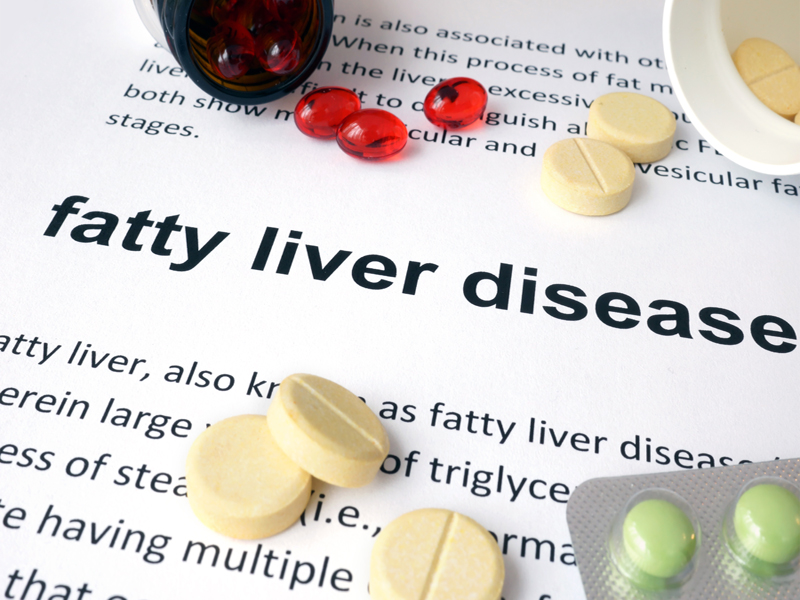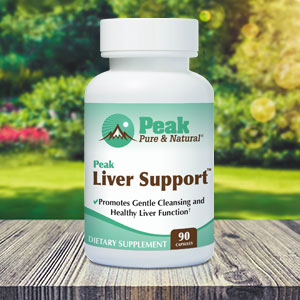Get Easy Health Digest™ in your inbox and don’t miss a thing when you subscribe today. Plus, get the free bonus report, Mother Nature’s Tips, Tricks and Remedies for Cholesterol, Blood Pressure & Blood Sugar as my way of saying welcome to the community!
Special antioxidant food reduces risk of fatty liver disease

Excess liver fat is a hazard to your health…
In fact, it’s even worse for you than that extra abdominal fat you’ve been worried about for all these years. That’s because it puts you at an even higher risk of developing insulin resistance, high cholesterol, heart disease, and diabetes.
But do you know the worst part about liver fat? You may not even know you have it…
Unlike belly fat you can gauge with your waistband, liver fat is hidden. The only way you’ll know about it is if you experience symptoms like fatigue, weakness, nausea or upper right abdominal pain. Or if your doctor happens to notice elevated liver enzymes on a blood test.
If one of these two things does happen to you, there’s a good chance you’ll be diagnosed with non-alcoholic fatty liver disease (NAFLD) — which is just a fancy name for excess fat on your liver that’s not caused by drinking too much alcohol.
And a fatty liver is prone to cirrhosis and liver cancer.
NAFLD is usually caused by diet… especially a diet high in carbs, unhealthy fats and sugar — like the standard American diet. That’s the perfect recipe for extra fat on your liver. If your mom was obese or followed this unhealthy diet too, your risk goes up even more.
Since NAFLD is largely influenced by diet, changing your diet can help turn the disease around. And there’s one thing, in particular, you should eat if you want to trim or prevent liver fat… the antioxidant pyrroloquinoline quinone (PQQ).
What you need to know about PQQ
Researchers from the University of Colorado recently found that PQQ (an antioxidant found in breast milk, soil and a lot of foods) can protect mice from fatty liver disease.
In their study, researchers gave PQQ to obese mice who were pregnant. Since the risk of NAFLD is higher in the offspring of obese mothers (mice and human), they wanted to see if PQQ impacted whether their offspring developed the disease.
And sure enough, it did. The offspring of mothers who received PQQ did not develop excess fat on their liver — even when they were fed an unhealthy, Western-style diet. They also had lower levels of liver inflammation.
Of course, this isn’t the first study that demonstrates PQQ’s powerful ability to protect the liver. A 2015 study showed that PQQ not only protects against liver disease, it also helps reverse existing damage caused by liver disease. Remember, liver disease can lead to liver cancer, so this really is a huge break.
Mind your Ps and Qs and PQQs
If you’re dealing with a fatty liver already — or just want to actively keep your liver in tip top shape — you should eat a diet that includes vegetables, fruit, whole grains, fish and high-quality meat.
But don’t forget the most important component… liver-protecting PQQ. Some foods that contain PQQ include:
- Fermented soybeans
- Parsley
- Green pepper
- Tofu
- Carrot
- Celery
- Fava bean
- Kiwi
- Cabbage
- Papaya
- Sweet potato (which can help you lose weight too)
- Tomato (also protective against high blood pressure)
- Orange
Editor’s note: Are you feeling unusually tired? You may think this is normal aging, but the problem could be your master hormone. When it’s not working, your risk of age-related diseases skyrockets. To reset what many call “the trigger for all disease” and live better, longer, click here to discover The Insulin Factor: How to Repair Your Body’s Master Controller and Conquer Chronic Disease!
Sources:
-
“Non-Alcoholic Fatty Liver Disease.” The American Liver Foundation. http://www.liverfoundation.org. Retrieved January 4, 2017.
-
“Common antioxidant may guard against liver disease, says researcher.” MedicalXpress. http://medicalxpress.com. Retrieved January 4, 2017.
-
Huang, et al. “Biological effects of pyrroloquinoline quinone on liver damage in Bmi-1 knockout mice.” Experimental and Therapeutic Medicine, Aug 2015; 10(2): 451–458.
-
Kumazawa, et al. “Levels of pyrroloquinoline quinone in various foods.” Biochemistry Journal, Apr 1995; 307(Pt 2): 331–333.













